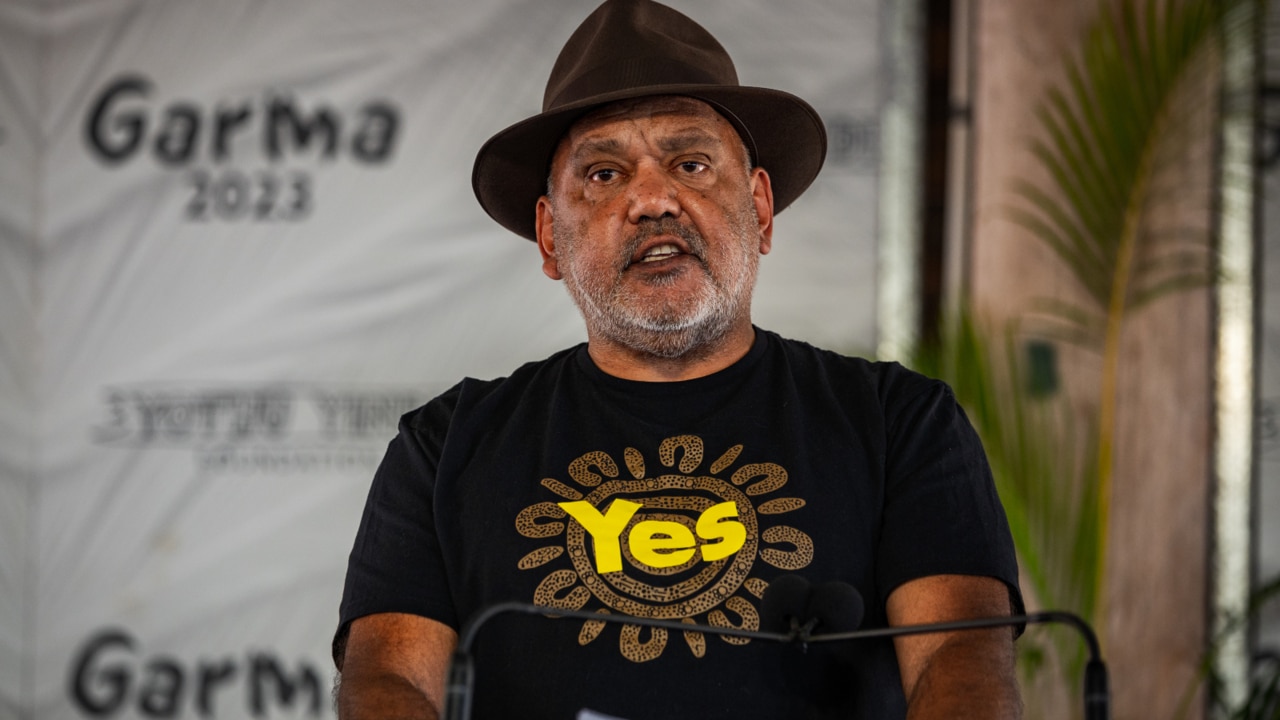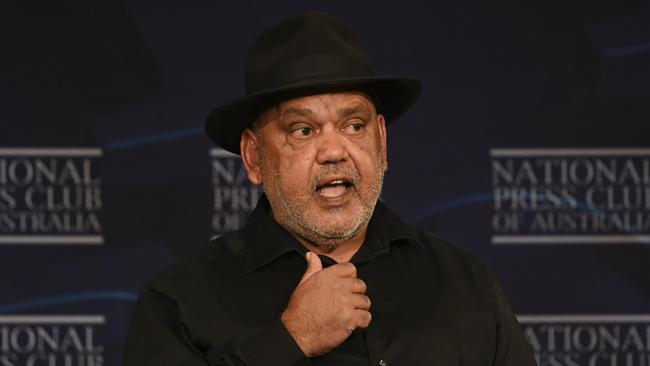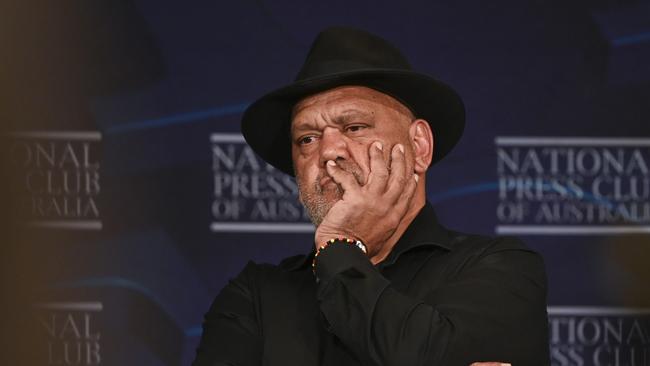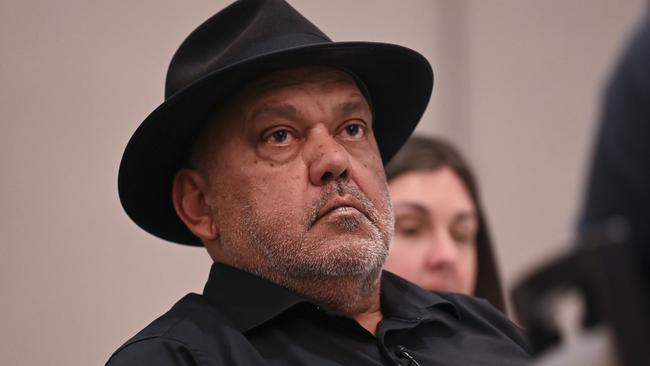Noel Pearson declares Voice a ‘test’ for Australia’s democracy
Having to attend a funeral in her community “every week in the last few months” is why one Indigenous leader says Australia needs a Voice to Parliament.

Noel Pearson has said enshrining an Indigenous Voice into the Constitution is not about race but about recognising the first peoples of Australia in a momentous speech that took aim at the No campaign’s claims that an advisory body would divide the country.
Mr Pearson on Wednesday addressed the National Press Club, where just a day earlier leading No campaigner Nyunggai Warren Mundine claimed the Uluru Statement from the Heart was a declaration of “war” against modern Australia.
But Mr Pearson said after speaking with thousands of fellow Australians, it was clear that love for the country had driven calls for a Voice.
“It is our mutual love of country that unites us,” he said.
“We don’t need mutual affection to succeed in this referendum. We need to recognise our mutually shared love for the land. Our children and grandchildren will be more likely to share affection between them than us.”

Evoking Dr Martin Luther King’s infamous “I Have a Dream” speech, the land rights activist and Indigenous lawyer declared a Voice would enable Indigenous Australians to be heard and, more importantly, Australians to listen.
He said having the body would compel the country to “look in the mirror” and carve his generation‘s name into the “bedrock of history”.
“We would like Australia to be kinder and friendlier to our children. Let’s follow Dr King’s dream that our children will embrace each other as brothers and sisters,” he said.
“Recognition is about the 97 per cent recognising the 3 per cent and offering the gift of Australia’s 120 year old constitutional democracy.
“Recognition is about the 3 per cent recognising the 97 per cent and offering the gift of Australia‘s millennia-old heritage.”

Mr Pearson, who is one of the most prominent figures in the Yes campaign, took aim at Mr Mundine’s claims that the Uluru Statement of the Heart was a declaration of “war”.
He urged the public to shift its rhetoric about division to justice and closing the gap of disadvantage.
“On October 14, we, the Australian people, face a choice – a choice between crossing the bridge to our future or floundering in the past,” he said.
“A choice between listening to each other, respecting each other, or closing our hearts and minds to the simple truth that when we listen, we do better.
“We can do this for the love of our country. The love of Australia. My land. Your land. Our land.”
Speaking after his address, Indigenous leaders across the country invoked Mr Pearson to plead with Australians to vote yes.
Jane Bieundurry, from the Kimberley Land Council, said she and her community – who she said were still “living in the dark ages” and were forced to drink dirty water – would benefit immensely from a Voice to Parliament.
“I need a Voice that helps me. I need a Voice that goes from there to here (Canberra),” she said.
Tania Major, from Kowanyama in Queensland, said a Voice would help address the epidemic of premature deaths in her community.
“Every week in the last few months we’ve had a funeral,” she said.
“And that statistic is alarming on its own, that nearly every week we’re attending a funeral of something that’s so preventable – like rheumatic heart fever, like dialysis and diabetes and suicide.
“Our lives do matter and having something like the Voice would give people like myself, women on the ground in the community, an opportunity to express our desire for change and provide insights to the issues that are affecting us and the systems not hearing our Voice.
“For a long time, our Voice has never been heard … We want change … We’re sick of being broke. We’re sick of being poor. Give us an opportunity, that’s all we’re asking for.”

Mr Pearson’s speech comes as Australia prepares to vote to enshrine an Indigenous Voice to Parliament on October 14. The debate over how the proposed advisory body would work has become increasingly divisive.
In the wake of controversial comments from the No campaign about the Stolen Generation and colonisation, and anti-Voice rallies organised by Nazi sympathisers, Mr Pearson called for Australians to not pay attention to the “tactics of distraction” of the No campaign.
“It serves their political interests to engage in cultural war. We don’t want that. We want to put cultural war behind us,” he said.
“I think a lot of the things, they don’t even believe themselves. They’re just convenient controversies. They just want to let the firecracker off by making outrageous claims.
“We have to … simply keep our eyes on the prize.”
When taking questions about undecided voters, Mr Pearson said he had converted many “soft No’s” by focusing on details on the ballot question.
He said claims by leading No campaigners that there were not enough “details” about the Voice were not necessary due to the government having full power to legislate how it works.
“Parliament’s job is to change the details whenever they decide to. What doesn’t change is the constitutional provision – so you can anticipate that next year, in the event of a successful referendum, the parliament will create the first version of the Voice, he said.
“That might go along for 10 years and then a government or a parliament may come along and say ‘we want to amend that. We want to amend the detail’. They’ve got the full power to do it.”


